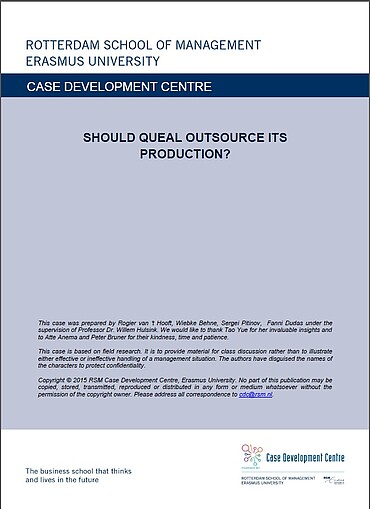description
As the Dutch powdered food supplements producer Queal grows, its production capacity becomes too small to cope with the increasing demand. Queal has to decide whether to outsource production but bear high risk, low profit margins and reduced autonomy, or to produce in-house, which requires significant capital investments they do not have.
Citation Note
Based on field research; 14 pages.
Follow the 'handle' link to access the Case Study on RePub.
For EUR staff members: the Teaching Note is available on request, you can contact us at rsm.nl/cdc/contact/
For external users: follow the link to purchase the Case Study and the Teaching Note.
Abstract
Queal, a Dutch company that produces powdered food supplements, was founded by Floris Wolswijk and Onno Smits. Queal’s product, a drinkable substitute meal with the right mix of proteins, fats, carbs and vitamins, is based on its American predecessor Soylent. As Soylent did not serve Europe, the two entrepreneurs bootstrapped resources for a homemade laboratory and developed a similar product for the Dutch market. Over time, Queal expanded their product portfolio and quickly internationalized to other European countries. However, the growth of the company also brought forth a major difficulty. Namely, Queal’s production capacity was not large enough to cope with the increasing demand. After a failed attempt to outsource production to Rotterdam foods, the founders were left with a dilemma. They either could attempt to outsource their production again, with the risks of another failure, lower profit margins and reduced autonomy. On the other hand, in-house production would require significant capital investments and therewith this option conflicted with Queal’s values.
